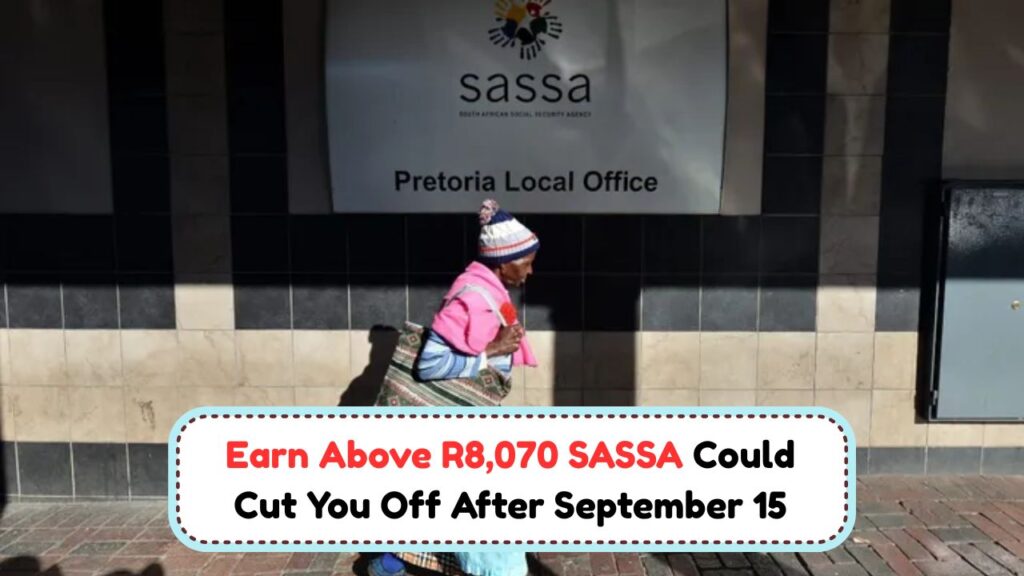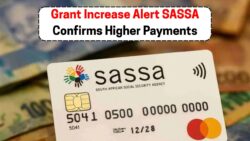SASSA Payments Halted: In recent developments affecting South African citizens, the South African Social Security Agency (SASSA) has implemented a new income threshold policy that could significantly impact beneficiaries. This change has stirred concern among those reliant on SASSA’s financial support, particularly as the cost of living continues to rise. The latest policy dictates that individuals earning over R8,070 will no longer qualify for certain grants, raising questions about the criteria used and the potential consequences for those on the cusp. Understanding the implications of this policy shift is crucial for current and prospective beneficiaries to ensure they remain informed and compliant.

Understanding the SASSA Income Threshold
SASSA’s decision to halt payments for those earning above R8,070 has been met with mixed reactions. While the agency aims to prioritize resources for the most vulnerable, the income threshold is a double-edged sword. For many, this ceiling represents a critical financial lifeline, as even a slight increase in income could lead to disqualification. The R8,070 threshold is designed to ensure that assistance is directed towards individuals and families in genuine need, yet it inadvertently pressures those hovering around this mark. As living expenses in South Africa continue to rise, the real challenge lies in balancing the need for fiscal responsibility with the obligation to support those in precarious financial situations. Beneficiaries are encouraged to regularly review their financial situation and report any changes in income promptly to avoid unexpected payment stoppages.
Impact on Beneficiaries and Local Communities
The abrupt halt in SASSA payments for those exceeding the income limit is more than just a personal setback; it reverberates through local communities reliant on this support. Many South Africans depend on these grants to cover essential costs such as food, housing, and education. With the new threshold, communities fear an increase in financial strain, leading to potential social challenges. The decision could result in a greater demand for community support services, as more individuals may seek alternative means to fill the financial void left by halted SASSA payments. Local businesses might also feel the impact, as reduced spending power affects economic activity. It’s crucial for community leaders and local governments to collaborate, ensuring that those affected receive guidance and support to navigate this transition effectively.
How to Determine Your Eligibility for SASSA Grants
For those concerned about their eligibility, understanding the criteria for SASSA grants is vital. The first step is to assess your income and compare it against the R8,070 threshold. Income includes wages, pensions, and other regular financial support, so it’s important to consider all sources. Beneficiaries should gather relevant documentation, such as payslips or bank statements, to provide accurate information during assessments. SASSA periodically reviews applications to ensure eligibility criteria are met, and beneficiaries are advised to keep their records updated. Additionally, exploring the nuances of the policy, such as exemptions or special conditions, can provide further clarity. If in doubt, seeking advice from a SASSA office or a financial advisor can help navigate the complexities of the application process.
Strategies to Cope with Loss of SASSA Payments
For individuals facing the abrupt cessation of SASSA payments due to the income threshold, developing a strategic approach to financial management is essential. Start by revisiting your budget to identify areas where expenses can be minimized or adjusted. Exploring alternative income opportunities, such as part-time work or freelance gigs, could supplement your financial needs. Additionally, engaging in community programs or support groups can offer new resources and insights. Some non-profit organizations provide assistance or workshops aimed at enhancing financial literacy, which could prove beneficial. It’s also prudent to explore government programs or initiatives that might offer temporary relief or assistance. While the halt in payments presents challenges, proactive planning and community engagement can mitigate the adverse impacts and foster resilience during these uncertain times.




